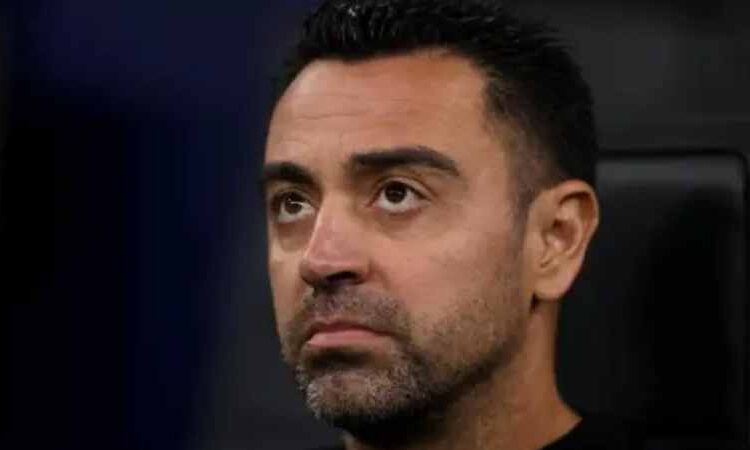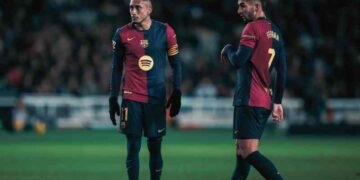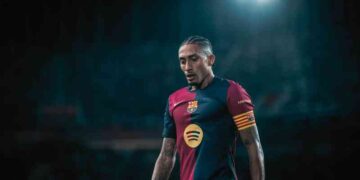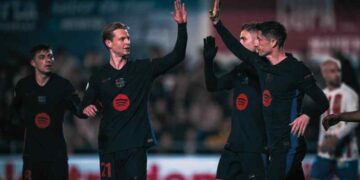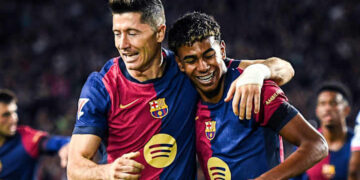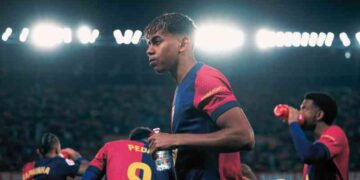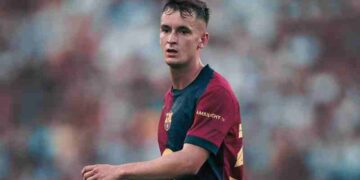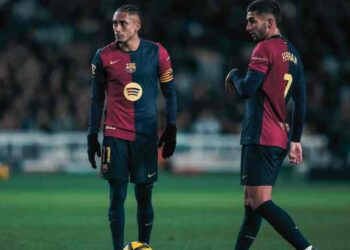Lost in Barcelona’s world, Xavi Hernández turns around. He thinks, he stays on his seat, he stands up again. As comfortable as the seat it, the spikes, under the seat and on his head make it difficult for the Catalan to enjoy the seat. His seat is comfortable, but it is incredibly painful as well. This is the story of Xavi Hernández, and his current situation at Barcelona, where the pain bleeds through the love for the club.
In the first two seasons, Barcelona lacked the players to perform Xavi Hernández’s ideas. Time, too, was also a factor; coming in mid-season is never ideal for any footballing project, especially if it’s named F.C Barcelona. After more and more additions, Barcelona has regressed, according to more and more fans. And if it has not, it most definitely has stalled, far from a good sign in any footballing project. But how is it possible, when the likes of Ilkay Gündoğan, Joao Felix, and Joao Cancelo arrived last summer? Aren’t those players that all played in Europe’s elites, that should be upgrading Barcelona’s project?
The short answer is yes, they should. The longer answer is that there are a lot more factors to take into account to understand Barcelona’s situation. Many stylistic shifts have come with the players, but the general style and dynamics of the team have not followed the natural change with the new players.
Different times, different problems?
Barcelona previously depended on verticality and wing-play, employing Ousmane Dembélé at the right-wing as a ball magnet, and preferring to use academy graduate Alejando Baldé as a false left-winger. But Ousmane isn’t there anymore, he left for Paris Saint-Germain, and Barcelona has not really found a successor besides 16 year-old Lamine Yamal, another academy graduate. To add insult to the injury, the back-line has experience drastic changes, while it was the only foundation laid from the previous season.
Koundé, who used to play at right-back, has seen his preferred centre-back role more often. His usual partner, Ronald Araújo, has seen injuries, therefore preventing the pair from playing together. Andreas Christensen became as such ‘The Ugly Duckling’, seeing the bench more often than he should have in light of his great performance in the past 365 days. Adding fuel to the fire, the arrival of Joao Cancelo has forced the back-line into having a defender less, therefore exposing the team’s structure to further counter-attacks.
But besides the people, the bonds have been shuffled, abandoned. Without bonds, the Ying-Yang Xavi found last season that led Barcelona its first La Liga title since the pandemic was crushed, gone. All of the work of association between the players doesn’t seem to be there anymore. And there’s no greater contrast than a team that lost both Pedri González and Frenkie de Jong, two midfielders with very specific function. Particularly the latter, who shined due to the fact he worked as a bridge builder, while Pedri worked as an organizer.
Working with missing pieces
Working in relative chaos is already a problem but can be managed. However, working without bonds and bridges is pretty impossible. And it shows, as Barcelona’s form experienced a 180° turn since De Jong’s injury. Frenkie, above all, helped Romeu managed the midfield’s tough task of connecting defense and offense, and supported the Spaniard. Since De Jong is no more, critics have turned towards Romeu more than ever. That is unlikely to be a coincidence. Additionally, the forwards are receiving less and less support from the midfield. There’s a strong connection to Barcelona’s best two midfielders being absent, despite Fermin Lopez’s excellent run (yet another academy graduate).
But there is another problem, and it is the biggest. Shakhtiar Donetsk’s victory in Hamburg against Barcelona (1-0) showed it. This team does not work as a team, and overloads accompanied with switches is Barcelona’s Achilles Heel. With no connection between the players, who switch up their teammates too often, they cannot trust or predict the trajectory and patterns of their neighbors; there is no communication, only islands. And the more disconnected a team is, the worse it gets, especially in European inter-continental competitions. A disconnected press (the front three does not really have exact pressing patterns). And a back-line that doesn’t trust itself, that does not communicate. A team that does not organized itself, that does not pause, and is shocked at their own hits coming back just as fast, boomerang-style.
Conclusion
Barcelona has a problem. A problem, that runs deeper. Barcelona does not know itself, because it forgot its own Ying-Yang. It can play as much jujitsu as it wants on the football pitch. But it will always end up getting outrun. It worsens the situation in individual match-ups for a majority of the players. Without identity, there is no success, there is no process. And the process is rebooted after every match, erasing its own browser history. Barcelona’s software isn’t outdated (despite that’s the usual argument seen in mass media). Barcelona’s software is constantly reprogrammed. But Xavi never hits Ctrl+S (Save Button), and as such, starts re-writing the script again.
Déjà-vu situations for the fans, déjà vu situations for everyone. Time is passing by, the sandclock is running out of sand. Rather sooner than later, Xavi Hernández will need to justify the last month, which seems to have landed the team in a cul-de-sac. It’s already been two years, the presidential elections are approaching, and it’s unlikely to board forgives Xavi Hernández much longer. The situation isn’t a disaster, but it could quickly go from one to a hundred. Xavi, it’s your move. your time to play.
Positional play expressed through all phases of play, a football fan that fell in love with the Beautiful Game over 10 years ago. Occasionally writes about FC Barcelona for Barca_Buzz, on tactics and attempts to explain the game to the casual eye.
Discover more from Barça Buzz
Subscribe to get the latest posts sent to your email.

